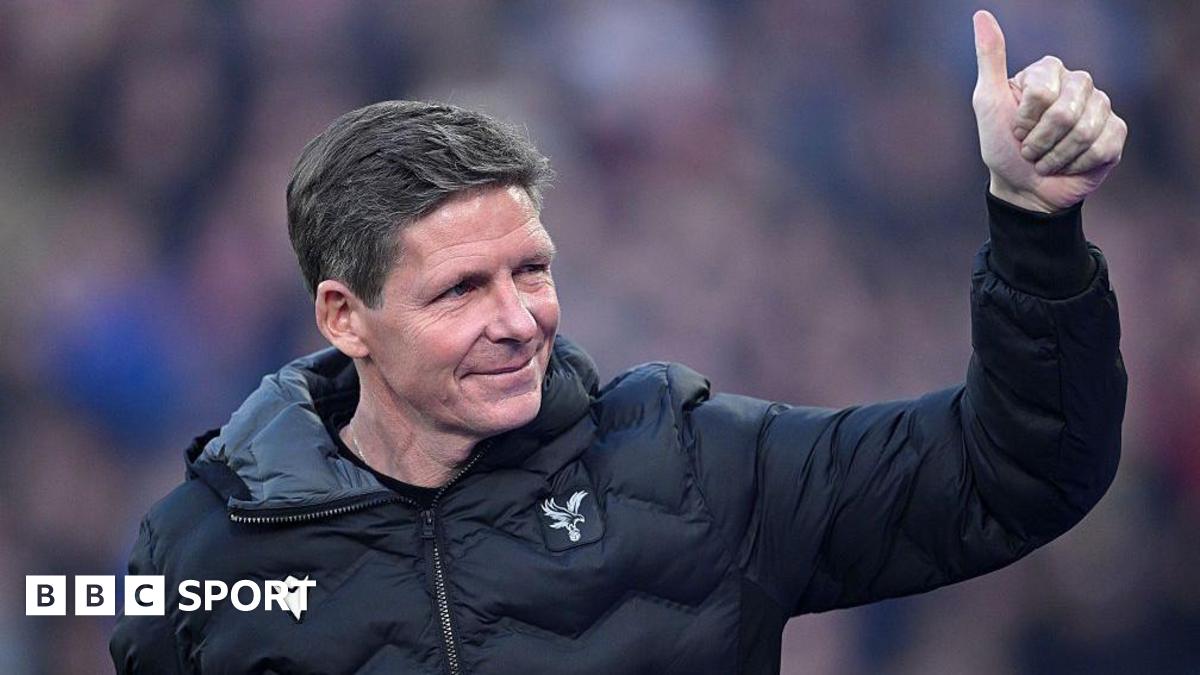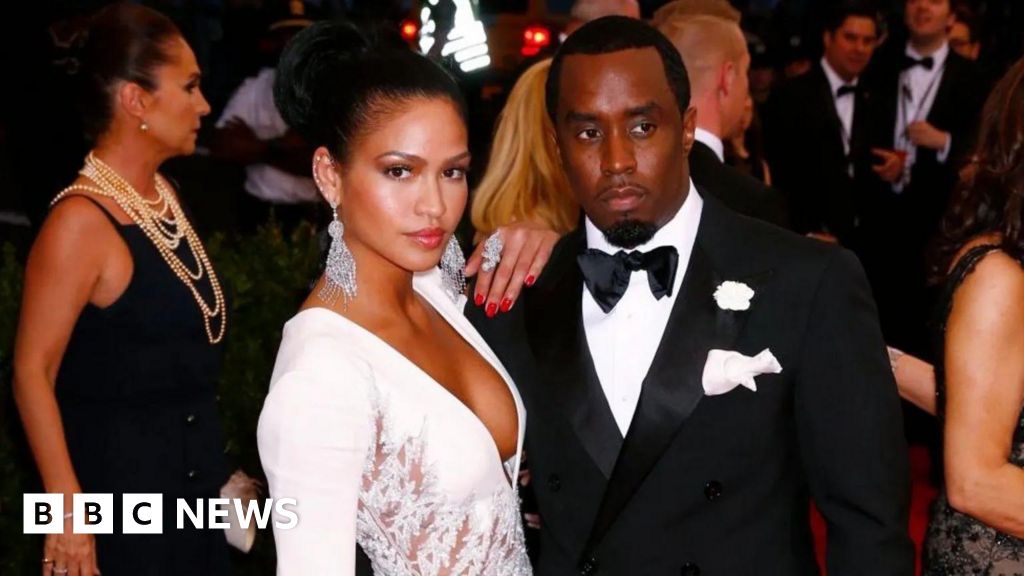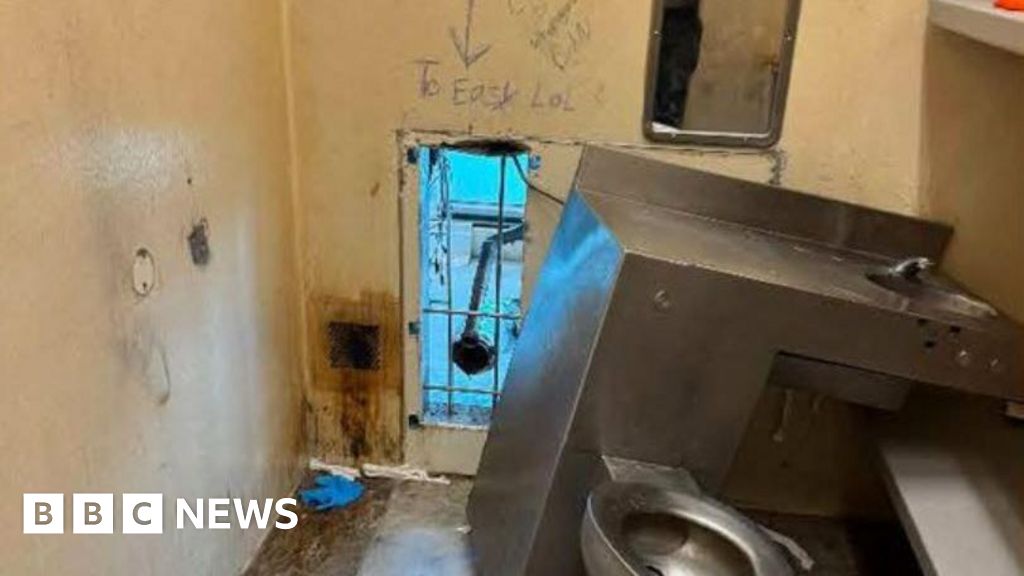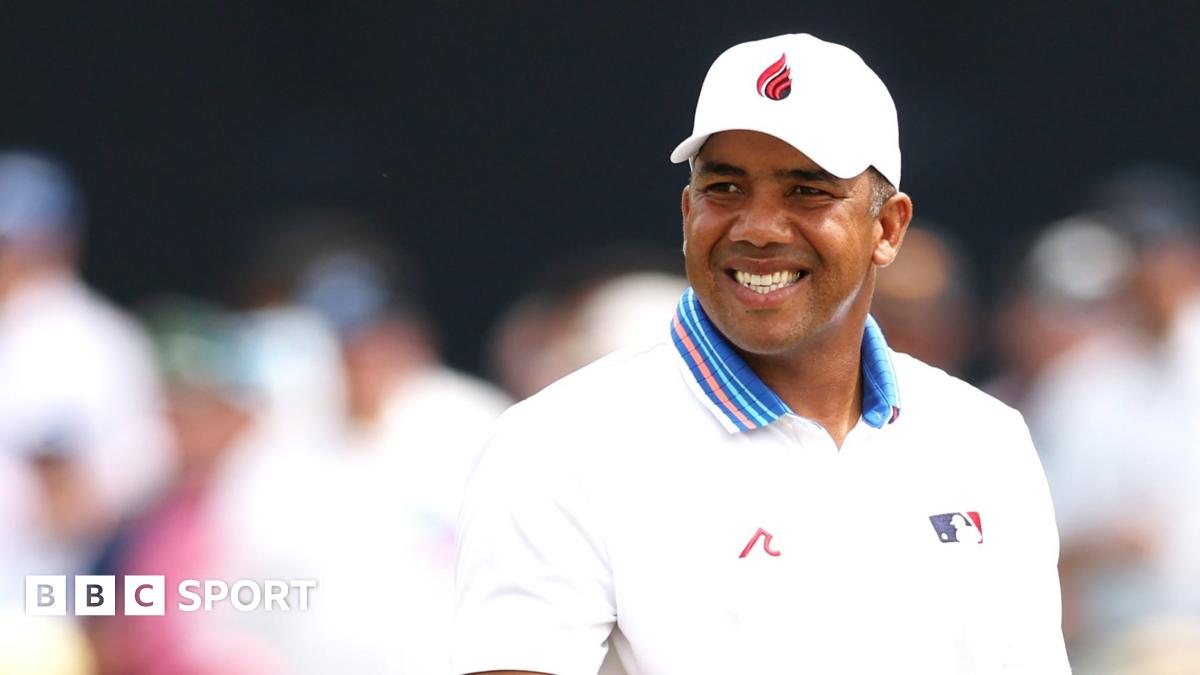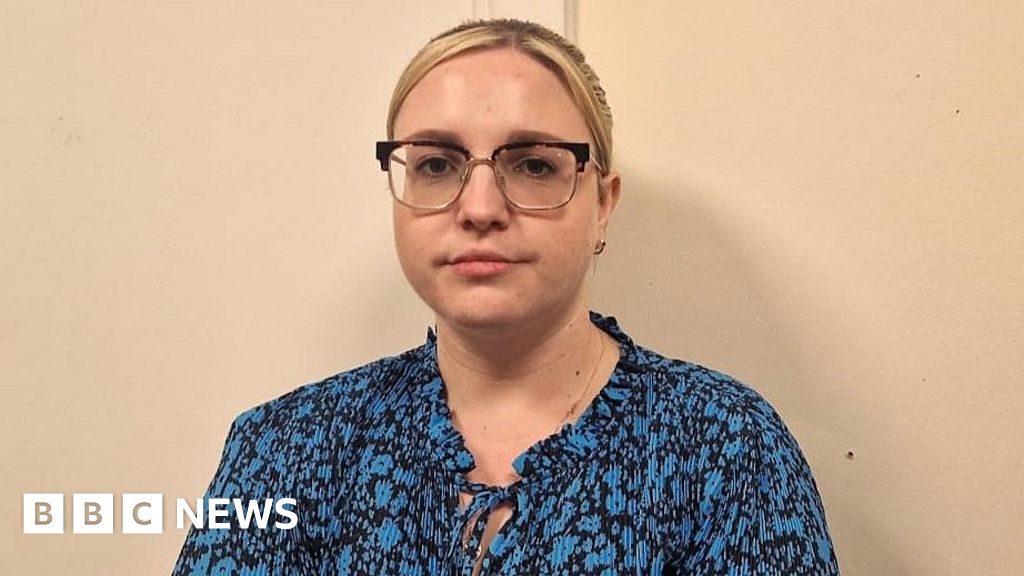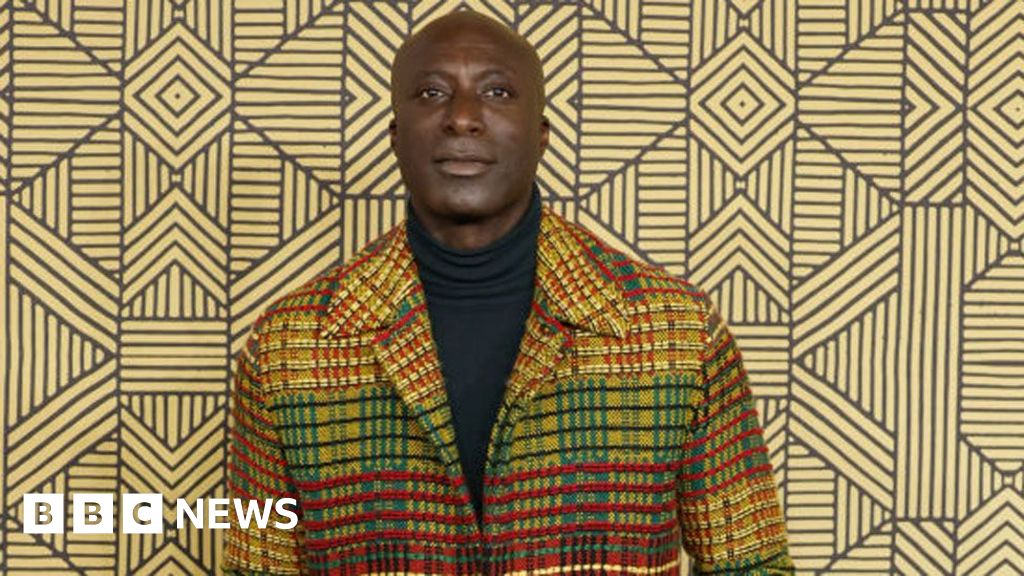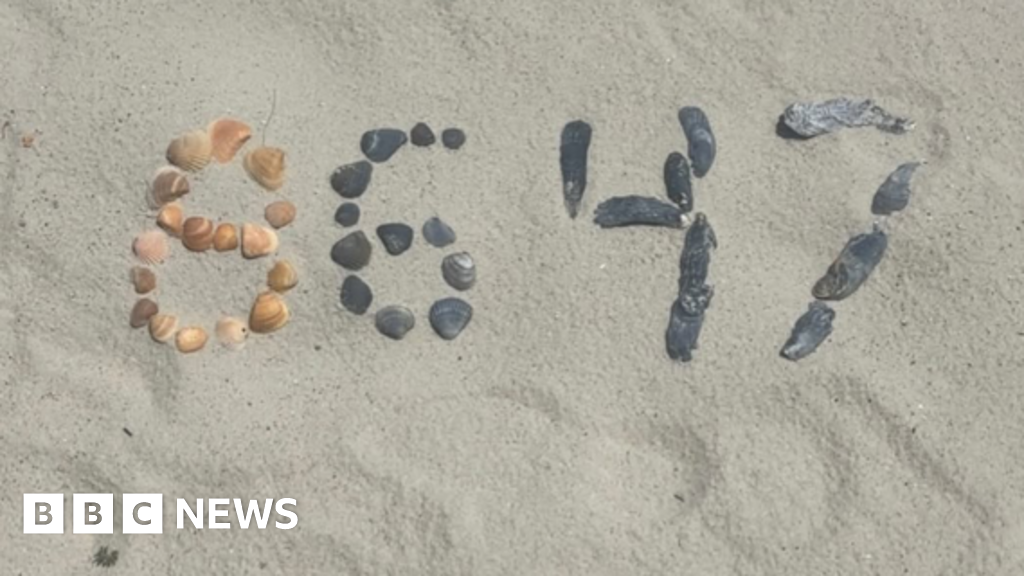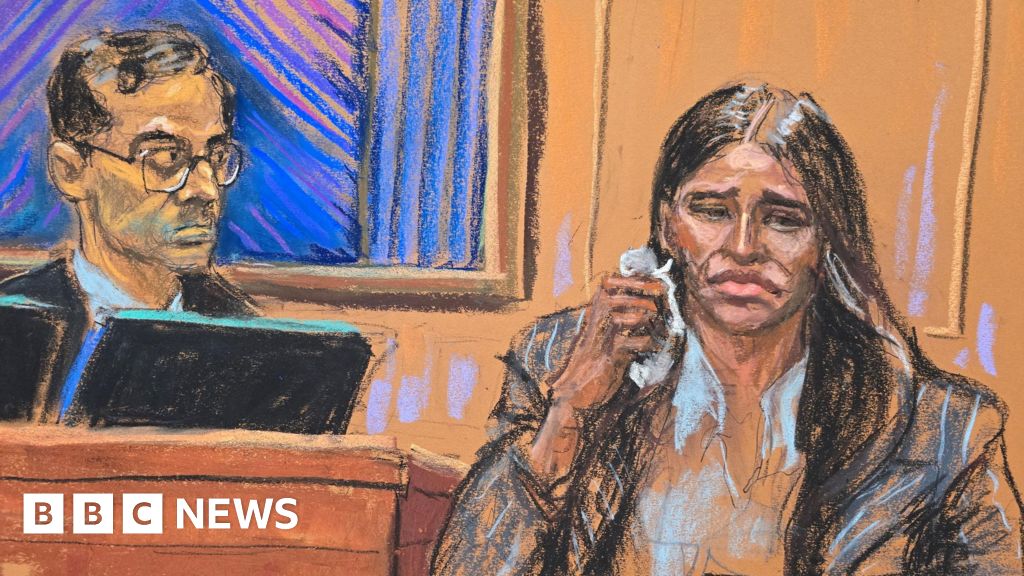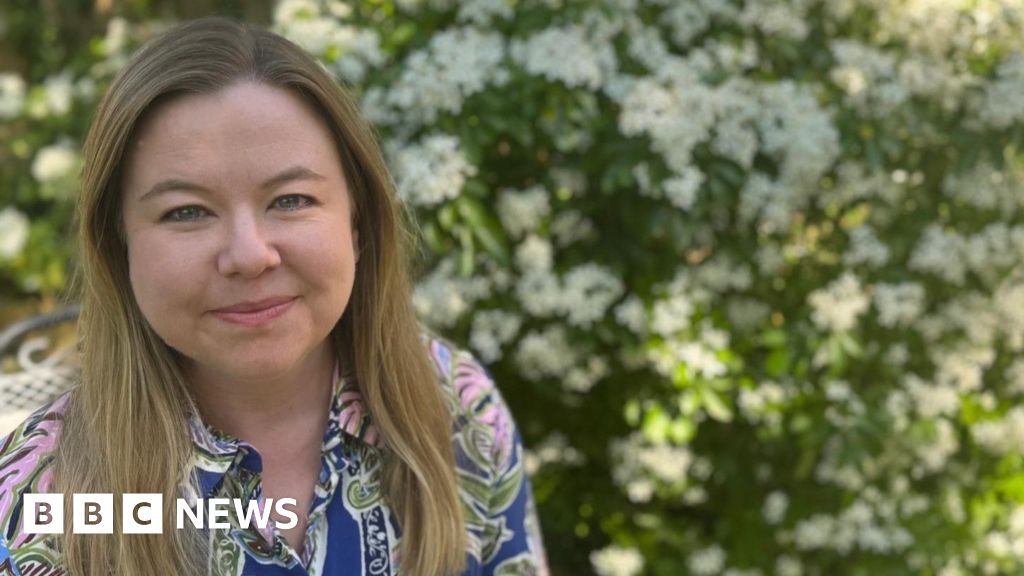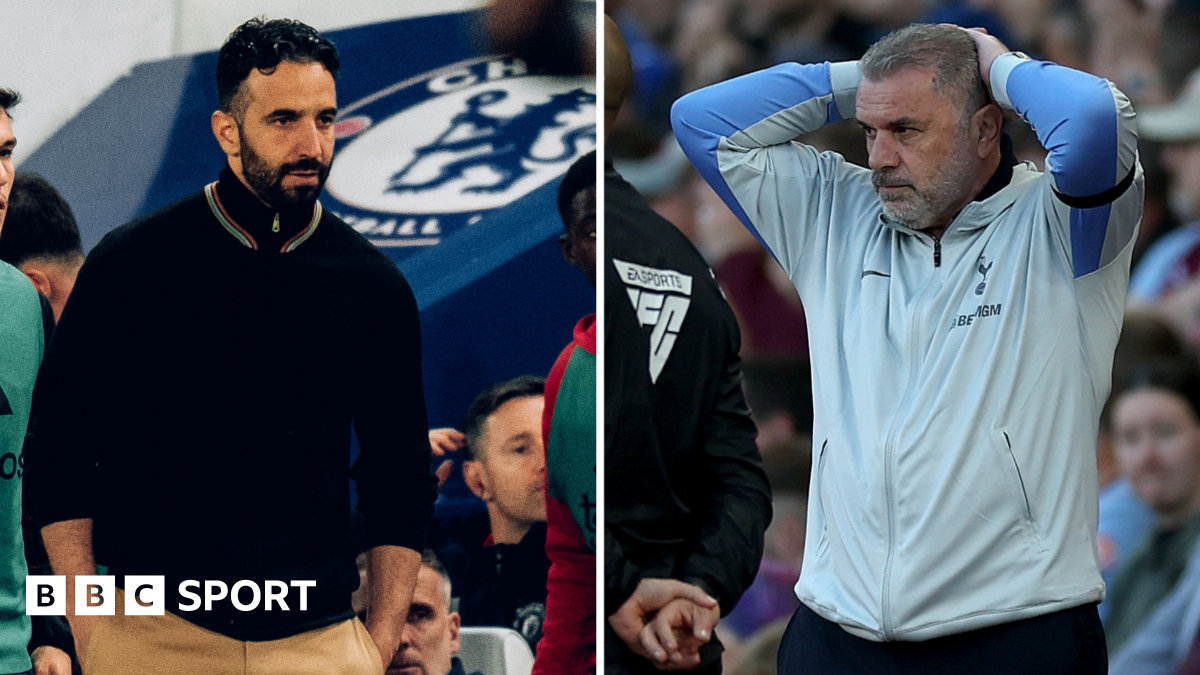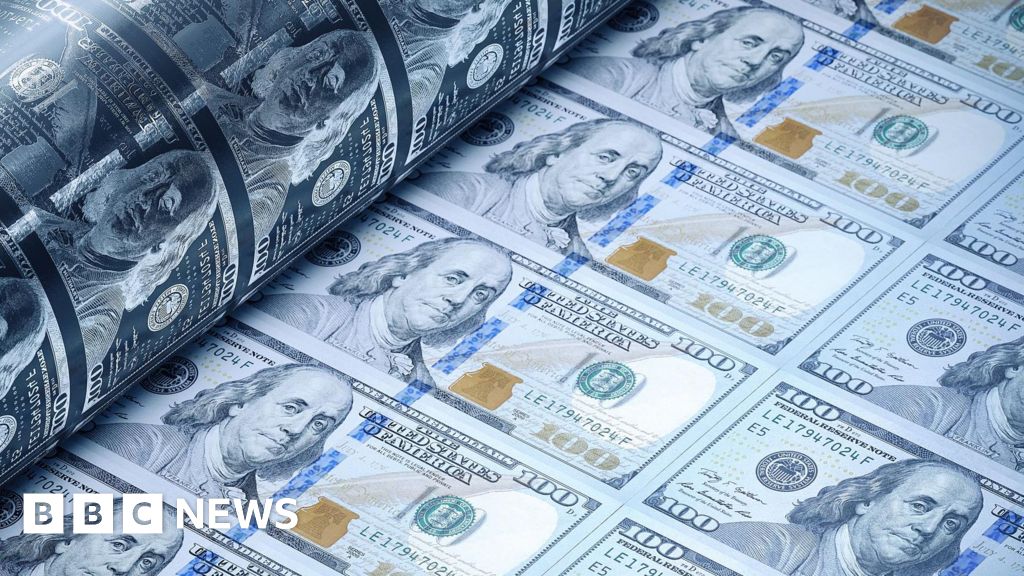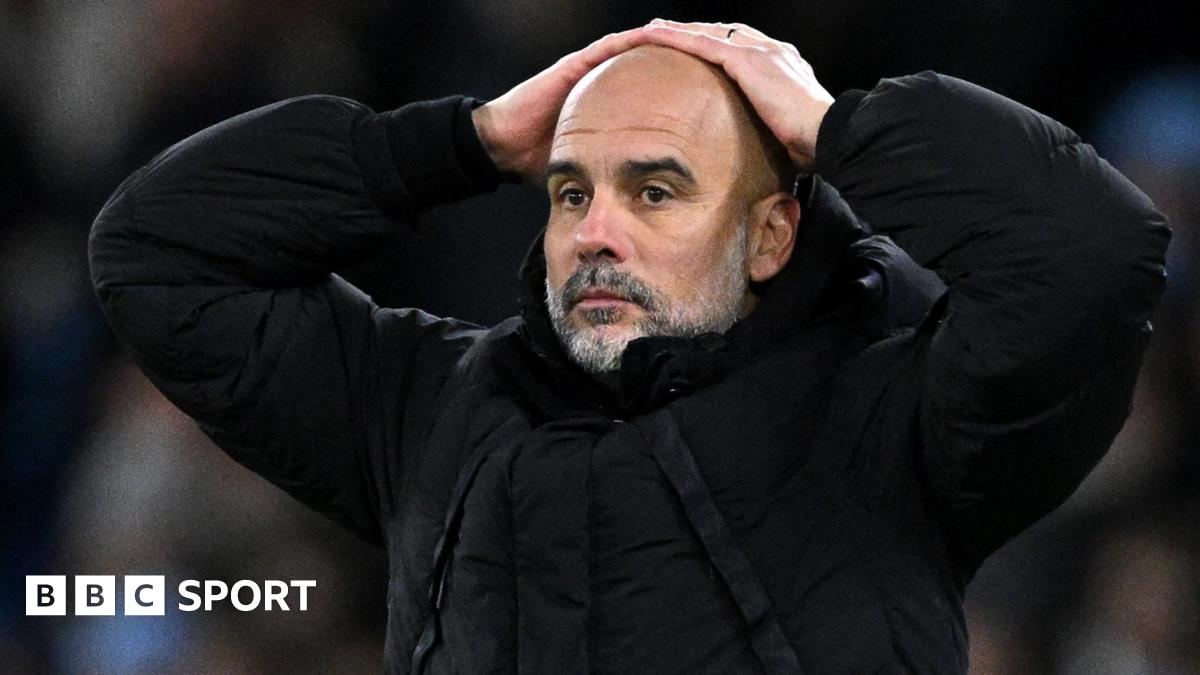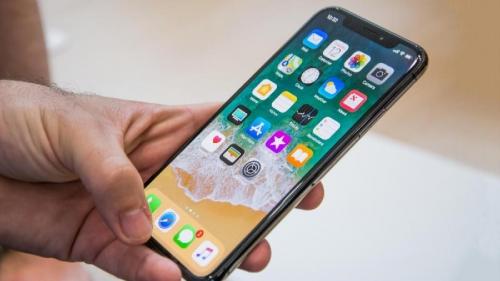Thomas Mackintosh
BBC News, London

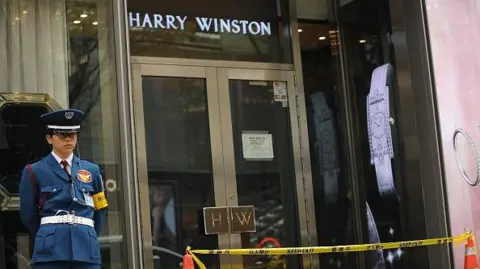 Getty Images
Getty Images
The high-end Harry Winston jewellery store in Tokyo was burgled in November 2015
Two British men accused of robbing a luxury jewellery store in Tokyo can be sent to Japan following a landmark ruling.
For almost a decade, Japanese authorities have pursued the extradition of Kaine Wright, 28, Joe Chappell, 38, and a third man over allegations they posed as customers to steal items worth £679,000 (¥106m) from a Harry Winston store.
On Friday, chief magistrate Judge Goldspring rejected Wright and Chappell's challenges against extradition. Their case now passes to the home secretary to decide whether they should be sent to Japan.
No extradition treaty exists between the UK and Japan, meaning it would be the first time Japan have successfully received fugitives.
Japan's initial request was rejected, but the High Court overturned the original decision following an appeal lodged by the Japanese government.
In Friday's judgement - seen by the BBC - Wright, of Plumstead, and Chappell, of Belvedere, both in London, had raised concerns over prison conditions in Japan which they argued were "arbitrary, excessive and breach international standards".
The Japanese government said the submissions were "fundamentally flawed both legally and factually".
District Judge Goldspring, chief magistrate of England and Wales, found there was a "prima facie case" - enough evidence to support a charge at first glance - against Chappell and that extradition would be "compatible" with his and Wright's human rights.

 PA Media
PA Media
Kaine Wright appeared at Westminster Magistrates' Court last month
Friday's ruling follows a recent High Court judgement that the Japanese government had a case to extradite Wright, Chappell and a third man named in papers as Daniel Kelly - who is Wright's father.
Japan's case against Kelly will be heard at the end of this month. He has not appeared in previous extradition hearings due to a conspiracy to murder case against him taking precedence.
Details from January's High Court judgement state that the Japanese "relied upon a range of evidence" which demonstrated that Kelly, Wright and Chappell travelled to Tokyo around the time of the jewellery raid in November 2015.
CCTV captured all three arriving at Narita International Airport on 18 November 2015 and staying at "the Elm Share House", Japanese authorities said.
Ch Insp Suzuki set out a record of the investigation to the High Court which indicated the trio "took taxis" to Harry Winston's branch in Omotesando Hills.
In their efforts to escape, the trio left a number of items behind including an Armani jacket, he said.

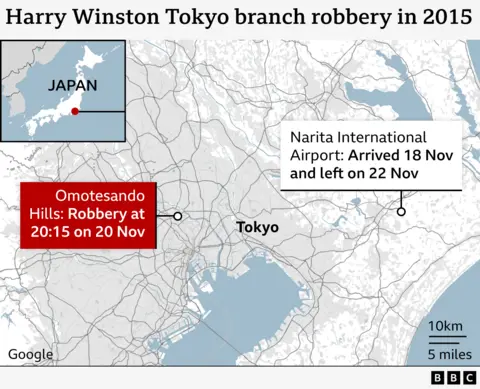
Ch Insp Suzuki added: "Goggles were left at the shop and a jacket was left on the route the robbers took to flee from the scene."
A professor at the Tokyo Dental College compared ePassport images taken at Narita Airport and compared it to CCTV stills of three men taken at the Harry Winston store.
"The possibility that two (or three) persons in the relevant comparison are the same is extremely high," Ch Insp Suzuki said in his report, citing the professor's "expert" findings.
As well as other DNA matches, Ch Insp Suzuki's report referred to "expert evidence that glass shards found at the property where the three stayed that matched the glass in the display case at the jewellery shop".
Findings in the reports were challenged at the High Court by lawyers representing Wright and Chappell.
The Japanese government said it would ensure that the three men would have the right to consult with a lawyer in private, have any interviews recorded and have the right not to answer any questions.
Wright, once a promising footballer on the books of West Ham United and Brentford, served time in prison after being convicted in 2023 of trying to sell a Ming vase which was stolen from a museum in Switzerland.
Subject to any further appeals, Home Secretary Yvette Cooper now has 28 days to decide whether to extradite Chappell and Wright or reject Japan's request.
.png)
 6 hours ago
4
6 hours ago
4
